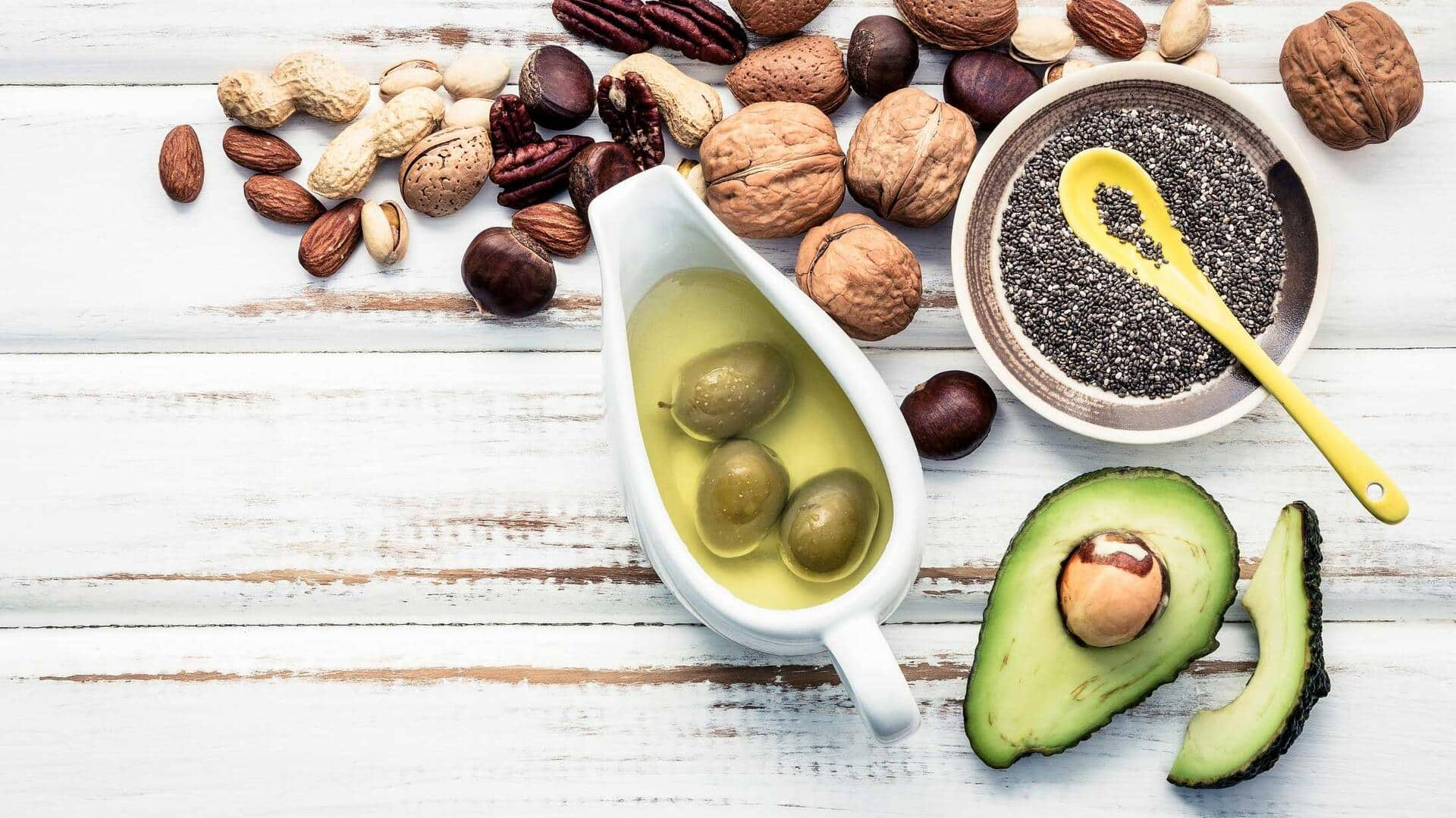
Truth about healthy fats: Myth v/s facts
What's the story
For decades, healthy fats have been misunderstood, often deemed harmful or unnecessary. However, recent studies have revealed that they are essential for maintaining overall health. Yet, several myths about healthy fats continue to linger, leaving many confused and misinformed. In this article, we will debunk some of the most common myths surrounding healthy fats and clarify why you need to add them to your diet.
Misconception 1
Myth: All fats are bad for you
The common notion that all fats are bad is far from true. While trans fats and saturated fats can be harmful in excess, unsaturated fats are good for heart health and brain function. These include the monounsaturated and polyunsaturated fats found in foods such as avocados, nuts, and seeds. Knowing the difference between these types of fat is key to making informed food choices.
Misconception 2
Myth: Low-fat diets are healthier
Many people think that low-fat diets are always healthier than those with moderate fat. But cutting out healthy fats can cause nutrient deficiencies and make you crave unhealthy foods high in sugar or refined carbohydrates. A balanced diet with healthy fats promotes better energy levels and nutrient absorption.
Misconception 3
Myth: Eating fat makes you gain weight
The notion that eating fat makes you gain weight is misleading. While it's true that fat has more calories per gram than carbs or protein, it also ensures satiety and regulates hunger hormones. Including moderate amounts of healthy fat can help with weight management by keeping you fuller for longer.
Misconception 4
Myth: Plant-based oils are always healthy
Not all plant-based oils provide the same health benefits; some may even be harmful when consumed in excess or not properly processed. For example, oils high in omega-six fatty acids such as soybean oil should be balanced with omega-three rich sources such as flaxseed oil to maintain maximum health benefits.
Misconception 5
Myth: Cholesterol from food is harmful
Cholesterol in food doesn't have much effect on most people's blood cholesterol levels. The body regulates its cholesterol production according to what you eat, so eating cholesterol-rich foods doesn't result in higher blood levels for most. This is because, unless genetics come into play, dietary cholesterol has a negligible impact on overall blood cholesterol levels in the body.